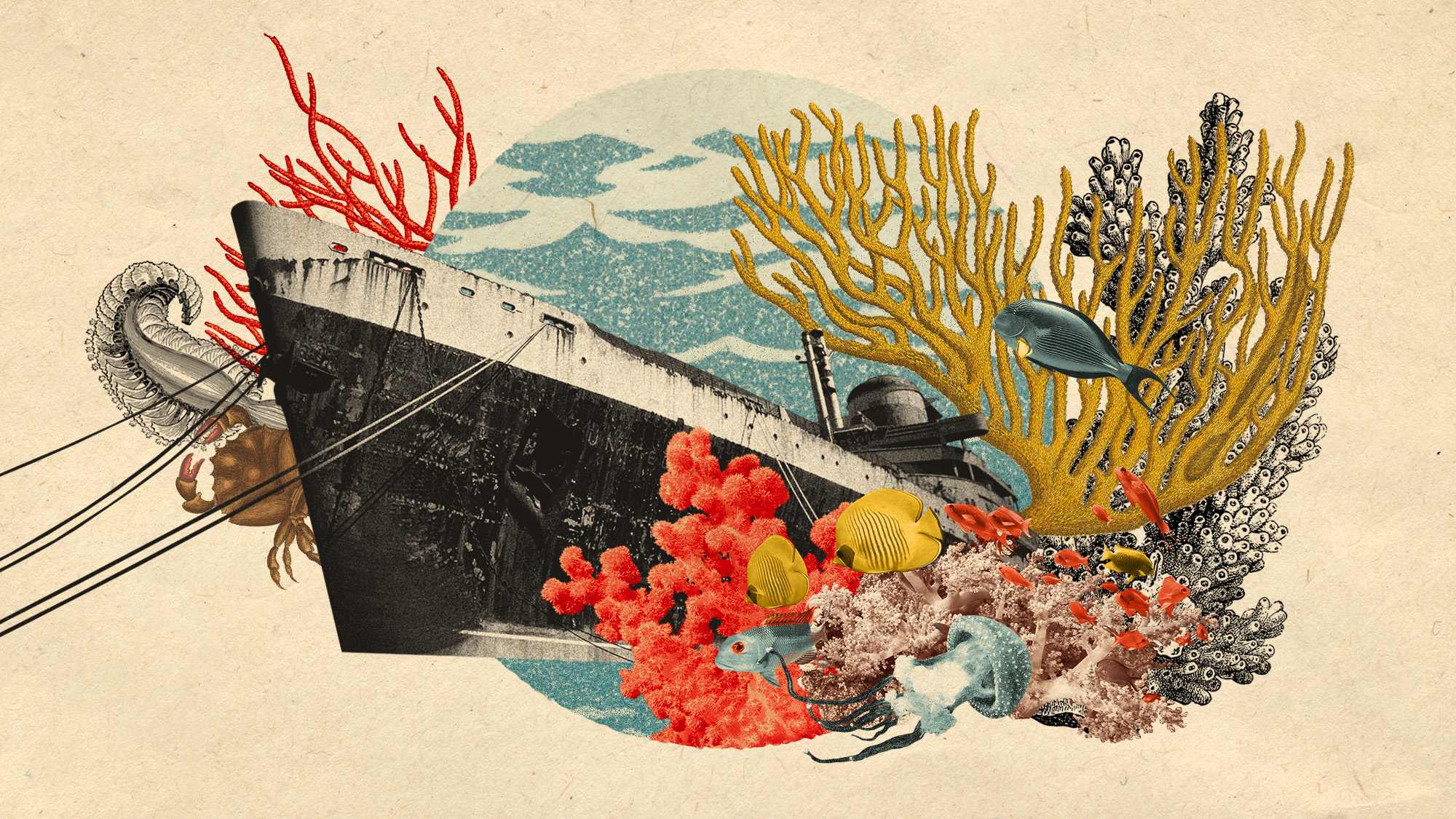An iconic ship is being turned into the world's largest artificial reef
The SS United States will be sunk off the coast of Florida if all goes to plan


A free daily email with the biggest news stories of the day – and the best features from TheWeek.com
You are now subscribed
Your newsletter sign-up was successful
The retired ocean liner SS United States has been moored in Philadelphia, unused, since 1996, but may have finally found its final purpose: as a safe haven for marine life. A tentative agreement has been reached to send the ship from Philadelphia to Florida, where it will be sunk to become the world's largest artificial reef.
The agreement, which hinges on the completion of U.S. District Court mediation, was hatched between Okaloosa County, Florida, a local Florida beach and the SS United States Conservancy. If all goes to plan, the sunken ship will "be a home for a diverse range of marine life and attract divers and anglers from around the world," Okaloosa County said in a press release. Other environmentally friendly efforts are also being made in relation to the reef project.
What is the plan for the SS United States?
It is "expected to take more than a year to complete the necessary environmental remediation of the historic ocean liner and an additional six months to a year to arrange the vessel's deployment," said Okaloosa County's press release. If this is completed, the ship will leave Philadelphia and be towed to Destin-Fort Walton Beach, where it will be sunk as an artificial reef. The 1,000-foot ship will "be an exciting addition to the many artificial reefs and wrecks available in Destin-Fort Walton Beach for divers to explore while providing essential habitat for the fishery that our fleet is so dependent on," said Okaloosa County Tourism Director Jennifer Adams.
The Week
Escape your echo chamber. Get the facts behind the news, plus analysis from multiple perspectives.

Sign up for The Week's Free Newsletters
From our morning news briefing to a weekly Good News Newsletter, get the best of The Week delivered directly to your inbox.
From our morning news briefing to a weekly Good News Newsletter, get the best of The Week delivered directly to your inbox.
This would mark the final chapter in the life of the iconic ocean liner, which was constructed in the 1950s and was "originally built to move troops in the event of war," said CBS News. It was later "converted into a cruise liner and was considered the fastest ship in the world at the time," and transported dozens of heads of state and celebrities across the Atlantic Ocean, including John F. Kennedy and Walt Disney. Eventually, the ship was sold to various owners before making its way to Pennsylvania. It was then towed to Philadelphia, where the SS United States has laid dormant for nearly 30 years and faced disputes about its future.
What else will happen around the reef?
Beyond the ship itself, the hope is that the reef "will be a barnacle-encrusted star in Okaloosa County's constellation of more than 500 artificial reefs, making it a signature diving attraction that could generate millions of dollars a year in local tourism spending for scuba shops, charter fishing boats and hotels," said The Associated Press.
The deal to sink the ship will "also come with money from the county to open a land-based museum dedicated to the ship, one that would be run by the conservancy," said The New York Times. This is not the first time alternate uses have been debated for the ship, but these efforts largely went unrealized.
And some who originally scoffed at the idea of sinking the ship now appear to be onboard. Making the ship into a reef is "not why I spent so much of my life trying to save her," Susan Gibbs, who runs the SS United States Conservancy (and whose grandfather designed the ship), said in an interview with the Times in August 2024. But she seems to have changed her mind, as making the ship into an artificial reef will "write a new chapter for the SS United States as a world-class destination," Gibbs said in Okaloosa County's press release.
A free daily email with the biggest news stories of the day – and the best features from TheWeek.com
Justin Klawans has worked as a staff writer at The Week since 2022. He began his career covering local news before joining Newsweek as a breaking news reporter, where he wrote about politics, national and global affairs, business, crime, sports, film, television and other news. Justin has also freelanced for outlets including Collider and United Press International.
